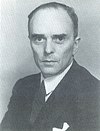1957 Irish general election
| |||||||||||||||||||||||||||||||||||||||||||||||||||||||||||||||||||||||||||||||||||||||||||||||||||||
146 of 147 seats in Dáil Éireann 74 seats needed for a majority | |||||||||||||||||||||||||||||||||||||||||||||||||||||||||||||||||||||||||||||||||||||||||||||||||||||
|---|---|---|---|---|---|---|---|---|---|---|---|---|---|---|---|---|---|---|---|---|---|---|---|---|---|---|---|---|---|---|---|---|---|---|---|---|---|---|---|---|---|---|---|---|---|---|---|---|---|---|---|---|---|---|---|---|---|---|---|---|---|---|---|---|---|---|---|---|---|---|---|---|---|---|---|---|---|---|---|---|---|---|---|---|---|---|---|---|---|---|---|---|---|---|---|---|---|---|---|---|---|
| Turnout | 71.3% | ||||||||||||||||||||||||||||||||||||||||||||||||||||||||||||||||||||||||||||||||||||||||||||||||||||
| |||||||||||||||||||||||||||||||||||||||||||||||||||||||||||||||||||||||||||||||||||||||||||||||||||||
 Percentage of seats gained by each of the five biggest parties, and number of seats gained by smaller parties and independents. | |||||||||||||||||||||||||||||||||||||||||||||||||||||||||||||||||||||||||||||||||||||||||||||||||||||
| |||||||||||||||||||||||||||||||||||||||||||||||||||||||||||||||||||||||||||||||||||||||||||||||||||||
The 1957 Irish general election was held on 5 March 1957, over four weeks after the dissolution of the Dáil on 4 February. It was the longest election campaign in the history of the state spanning 30 days. The newly elected members of the 16th Dáil assembled at Leinster House on 20 March when the new Taoiseach and government were appointed.
The general election took place in 40 parliamentary constituencies throughout Ireland for 147 seats in the lower house of parliament, Dáil Éireann.
Campaign
The general election of 1957 was precipitated by the crisis in the trade balance and the government's reaction to it. As a result of this Fianna Fáil tabled a motion of no confidence in the inter-party government of Fine Gael, Labour and Clann na Talmhan. Rather than face defeat in the vote the Taoiseach John A. Costello, decided to dissolve the Dáil and let the people decide. The campaign was fought largely over economic issues and the situation in the North. In the north the IRA launched Operation Harvest which drew much popular support in the south. Sinn Féin had been re-built and re-organized as a party by Paddy McLogan and was fielding abstentionist candidates.
Fianna Fáil had produced a major policy document in January, criticising many of its own policies in regard to the economy. While they did not know an election was imminent this became the backbone of their manifesto. The importance of free trade was played up by Fianna Fáil in a clear rejection of the protectionist policies they had advocated in the past. The architect of many of these new policies was the spokesperson for Industry and Commerce and the heir-apparent of the party, Seán Lemass. At 75 years of age Éamon de Valera was fighting his last general election as leader of the party. In spite of his age he carried out a vigorous campaign, often being accompanied by brass bands and torch-lit processions. The Fianna Fáil message was simple: coalition governments were unstable.
The other parties, most of them having enjoyed a stint in government over the previous three years, fought the election on their record in office, Fine Gael in particular. Clann na Talmhan failed to broaden their appeal and remained the voice of the farmers. Clann na Poblachta under Sean MacBride had agreed not to stand in constituencies where Sinn Féin were fielding candidates and never made the breakthrough it had hoped for and lost two of its three seats. Sinn Féin, fighting one of its first post-war elections polled well on an abstentionist ticket, winning 4 seats
Result
| Election to the 16th Dáil – 5 March 1957[1][2][3] | ||||||||
|---|---|---|---|---|---|---|---|---|
 | ||||||||
| Party | Leader | Seats | ± | % of seats |
First pref. votes |
% FPv | ±% | |
| Fianna Fáil | Éamon de Valera | 78 | +13 | 53.1 | 592,994 | 48.3 | +4.9 | |
| Fine Gael | Richard Mulcahy | 40 | –10 | 27.2 | 326,699 | 26.6 | –5.4 | |
| Labour | William Norton | 12 | –7 | 8.2 | 111,747 | 9.1 | –3.0 | |
| Sinn Féin | Paddy McLogan | 4 | +4 | 2.7 | 65,640 | 5.3 | +5.2 | |
| Clann na Talmhan | Joseph Blowick | 3 | –2 | 2.0 | 28,905 | 2.4 | –1.4 | |
| Clann na Poblachta | Seán MacBride[4] | 1 | –2 | 0.7 | 20,632 | 1.7 | –1.4 | |
| Irish Housewives' Association | 0 | New | 0 | 4,797 | 0.4 | – | ||
| Ratepayers' Association | 0 | New | 0 | 3,113 | 0.3 | – | ||
| Independent politicians in Ireland | N/A | 9 | +4 | 6.1 | 72,492 | 5.9 | +0.6 | |
| Spoilt votes | 11,540 | — | — | |||||
| Total | 147 | 0 | 100 | 1,238,559 | 100 | — | ||
| Electorate/Turnout | 1,738,278 | 71.3% | — | |||||
- Fianna Fáil majority government formed.
When the votes were counted it was clear that Fianna Fáil had achieved an overall majority. Éamon de Valera became Taoiseach for the last time.
Voting summary
Seats summary
First time TDs
- Kevin Boland (Appointed Minister for Defence on his first day in the Dáil.)
- Lionel Booth
- Seán Browne
- Batt Donegan
- Paddy Clohessy
- Patrick Dooley
- Pádraig Faulkner
- Jim Gibbons
- Charles Haughey
- Gus Healy
- Brigid Hogan
- John Joe McGirl
- Jack Murphy
- Ruairí Ó Brádaigh
- Eighneachán Ó hAnnluain
- James O'Toole
- John Joe Rice
- Patrick Tierney
Re-elected TDs
Outgoing TDs
- Patrick Crowe (Lost seat)
- Seán Collins (Lost seat)
- Peadar Doyle (Retired)
- Brendan Glynn (Retired)
- James Hession (Lost seat)
- Edward Kelly (Lost seat)
- Joseph Roddy (Lost seat)
- Thomas Walsh (Deceased)
See also
References
- ^ "16th Dáil 1957 General Election". ElectionsIreland.org. Retrieved 27 May 2009.
- ^ "Dáil elections since 1918". ARK Northern Ireland. Retrieved 27 May 2009.
- ^ Dieter Nohlen & Philip Stöver (2010) Elections in Europe: A data handbook, pp1009-1017 ISBN 978-3-8329-5609-7
- ^ After the election, while Seán MacBride remained leader of Clann na Poblachta, John Tully was the sole member of the parliamentary party.




